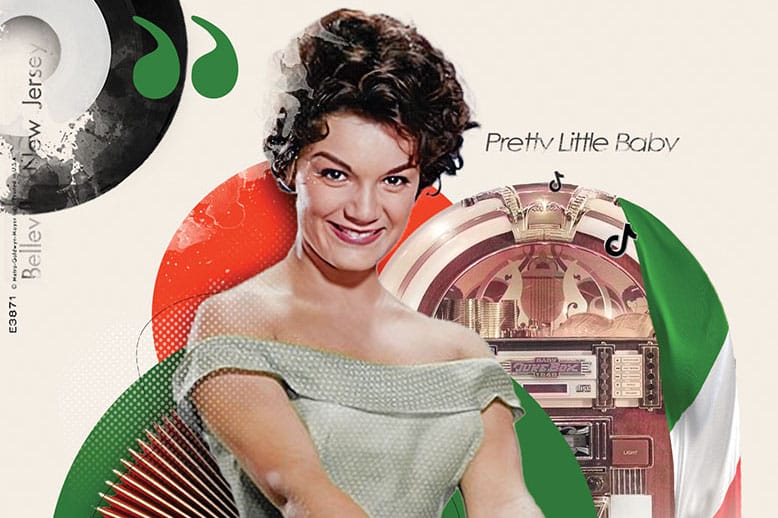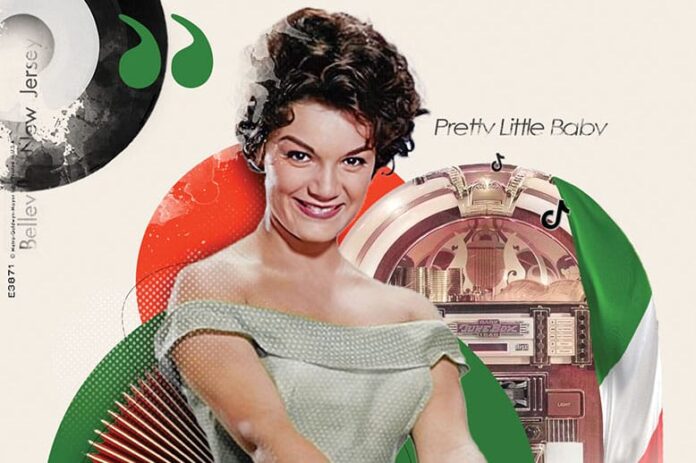Connie Francis, born Concetta Rosa Maria Franconero in 1937 in Newark’s Ironbound section, remains one of New Jersey’s most iconic musical exports. With a voice described as smooth, clear, and at times breaking as if about to cry, she captivated audiences nationwide and became a defining figure in American popular music during the late 1950s and 1960s.

Francis first shot to national prominence in 1958 at the age of 20 when she appeared on Dick Clark’s American Bandstand performing “Who’s Sorry Now?” Her heartfelt delivery and expressive style earned her instant acclaim, and the song leapt to number 4 on the Billboard Hot 100. It set the stage for a remarkable run of hits, including “Everybody’s Somebody’s Fool,” “Lipstick on Your Collar,” and “Where the Boys Are,” the latter earning her the nickname “the girl with the million-dollar cry.” Francis’ ability to blend vulnerability with strength in her performances allowed her to resonate with both teen audiences and older generations alike.
Growing up in an Italian American family, Francis credited her father with shaping much of her early career. After moving briefly to Brooklyn, her family returned to New Jersey, where she graduated from Belleville High School in 1955. Her father, who had placed an accordion in her hands at a young age, guided her musical selections, accompanied her on tours, and fiercely protected her personal life—once famously confronting her then-boyfriend Bobby Darin with a gun when he discovered the couple planned to marry. Beyond his protective instincts, her father encouraged her to record songs that would resonate deeply, such as “Mama,” which spoke to longing for family and connected with older audiences in unexpected ways.
Francis’ career was groundbreaking at a time when female performers entering the rock and roll world were still a rarity. She reflected on the shift in cultural norms during interviews, noting how teenage girls traded bobby socks for Capri pants almost overnight, symbolizing a broader transformation in American youth culture. While she often portrayed innocence in her music, Francis herself was astutely aware of her impact and the evolving music industry around her.
Even decades later, Francis’ music has continued to influence and find new listeners. Just two months before her passing in July at age 87, one of her lesser-known songs, “Pretty Little Baby,” experienced a viral resurgence on TikTok, captivating Gen Z and demonstrating her enduring cross-generational appeal. Her legacy as a Newark-born icon who brought heartfelt emotion and Italian American pride to the national stage remains unchallenged.
Mark Rotella, a distinguished author and editor, has dedicated his career to exploring and celebrating the Italian American experience. As the Director of the Joseph and Elda Coccia Institute for the Italian Experience in America at Montclair State University, Rotella plays a pivotal role in preserving and promoting the rich cultural heritage of Italian Americans.
Born in Connecticut and raised in St. Petersburg, Florida, Rotella pursued his academic interests at Columbia University, earning a B.A. in Russian Literature in 1992. His professional journey in publishing began at Publishers Weekly, where he served as a senior editor, honing his skills in literary criticism and editorial leadership.
Rotella’s literary contributions are notable for their depth and cultural insight. His debut book, Stolen Figs: And Other Adventures in Calabria (2004), is a memoir that chronicles his travels to Calabria, the southern Italian region from which his grandparents emigrated. Through personal anecdotes and historical exploration, Rotella offers readers a nuanced perspective on Italian heritage and identity.
In 2010, Rotella published Amore: The Story of Italian American Song, a comprehensive examination of the mid-20th-century era when Italian American crooners like Frank Sinatra, Perry Como, and Dean Martin dominated the American music scene. The book delves into the lives and careers of these artists, shedding light on their contributions to American pop culture and the complexities of their Italian American identities.
Beyond his writing, Rotella is committed to education and cultural advocacy. At Montclair State University, he teaches in the Creative Writing Program and serves as a thesis advisor in the MFA Program at Columbia University. His leadership at the Coccia Institute involves curating events, lectures, and programs that engage the community in discussions about Italian American history, arts, and culture.
Rotella’s work extends beyond academia and literature. He has contributed to various publications, including The New York Times, The Wall Street Journal, Salon, and The Washington Post, offering commentary and analysis on topics related to Italian American culture and identity.
Through his multifaceted career, Mark Rotella continues to be a leading voice in the exploration and celebration of Italian American heritage, enriching the cultural tapestry of New Jersey and beyond.
For more information on Italian American culture and events, visit Explore New Jersey Entertainment.












